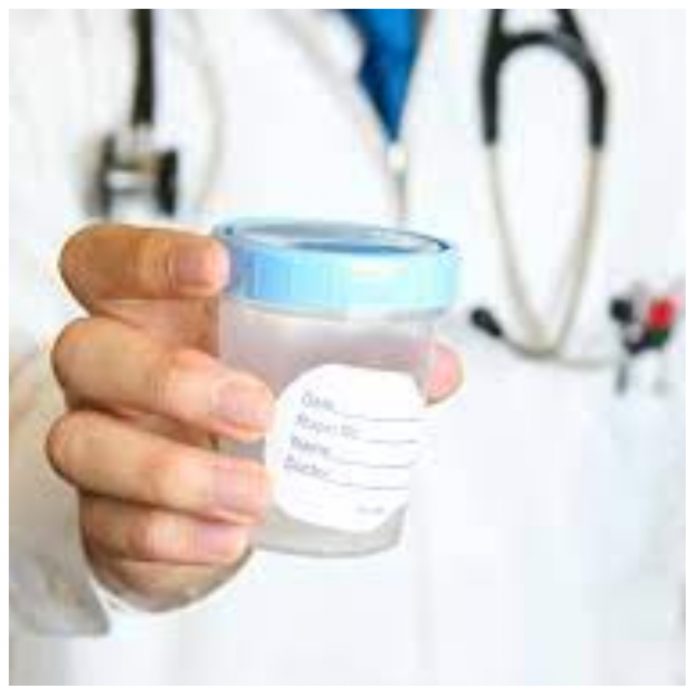
Low sperm count curable with treatment –Fertility experts
Fertility experts have urged men battling with low sperm count to seek proper medical intervention, noting that the condition is curable with appropriate medical treatment.
The experts, however, noted that the treatment of the condition is dependent on the underlying cause, stressing that unknown to many people, most cases of low sperm count usually have an underlying cause.
For a man to be considered to have normal semen, the World Health Organisation’s criteria state that such a man must produce 15 million spermatozoa per millimetre of ejaculated volume or 39 million in the entire sample.
According to the British National Health Service, having a low sperm count can make it more difficult to conceive naturally. The BNHS, however, noted that even though it is difficult, successful pregnancies can still occur with a low sperm count.
Speaking with PUNCH HealthWise, the experts, Consultant Urologist, Dr. Gabriel Ogah, and a fertility expert, Dr. Mojisola Aderonmu noted that men suffering from low sperm count may not even be aware until they are tested.
Dr. Ogah stated that there is a need for more awareness about low sperm count in Nigeria, noting that the condition has become a common problem among men in the country.
Also, a study titled Prevalence of low sperm count and abnormal semen parameters in male partners of women consulting at a private fertility clinic in Abakaliki, Eastern Nigeria, found that 70 per cent out of the study population of 170, had low sperm count with significantly high defective parameters (64 per cent).
The research led by Emmanuel Ugwuja found that asthenozoospermia (reduced sperm motility) and teratozoospermia (abnormal sperm morphology) were the major abnormal parameters recorded.
A higher prevalence of oligospermia (low sperm count) was found in civil servants and oligospermia semen (38) was associated with a bacterial infection.
Speaking further with PUNCH HealthWise, Ogah said, “Testicular failure is the cause of low sperm count. That is, the testes are no longer doing their work. What is the work of the testes? They produce the male hormone called testosterone which makes men develop muscles and appear masculine and produce sperm which is used to fertilise a woman’s eggs.
“When the testes have failed which means they can’t do those things, you say there’s a testicular failure and that is the commonest cause of low sperm count worldwide.
“The commonest form of testicular failure is varicocele, which is excess veins in the scrotum. When such engorged veins occur in a man’s scrotum and they have been there for some time, it is well known they can cause testicular failure.”
According to a recent article published online by Mayo Clinic – a medical center focused on integrated health care, education, and research, a varicocele is an enlargement of the veins within the loose bag of skin that holds the testicles (scrotum).
The site further explained that a varicocele may cause poor development of a testicle, low sperm production, or other problems that may lead to infertility.
Dr. Ogah also stated that other factors that could cause low sperm count include “toxins found in the environment and residues of pesticides found in food.”
He also noted that long-distance drivers who are exposed to heat around their waist area are at risk of low sperm count.
Ogah equally stated that there are hormonal factors that can lead to low sperm count, but stressed that chronic infection in the testes like childhood mumps can equally later cause low sperm count in adulthood.
This position of Dr. Ogah is supported by an article published in the African Journal of Reproductive Health by Sunny Abarikwu.
The article stated that “the level of infertility in Africa is due largely to reproductive tract infections which may be associated with abnormal semen parameters and low sperm count.
“In about 60 per cent of all couples experiencing infertility, a male factor is responsible in about 40 per cent of the couples. The male factor is associated with a greater percentage of cases of primary rather than secondary infertility.”
Dr. Ogah, however, noted that “in addition to all these factors, advancement in age could also be a factor for the development of low sperm count.”
He, nevertheless, stressed that low sperm count can be treated if the underlying cause is properly identified and addressed.
Also speaking with PUNCH HealthWise, Dr. Aderonmu, who is also an IVF expert added that obesity, the misuse or abuse of alcohol, smoking of cigarettes as well as shisha, can cause low sperm count.
Dr. Aderounmu also noted that medical problems like cancers could equally cause low sperm count in men.
On the treatment for the condition, she explained that the management of low sperm count depends on what is causing it.
“Usually, the men will need to do further tests of their hormones, scans of the private parts and in some instances biopsy of the testes to look microscopically at the portions of the testes that produce the sperm.
“The treatment options include medications which may be supplements or hormones, use of donor sperm is another option,” she said.
Speaking on the length of treatment for the condition, Aderonmu stressed that the length of time taken to manage a man’s sperm count to optimise chances of fertility depends on the underlying cause, what corrective measures are being deployed, and how the man’s body is responding to those measures.
To prevent low sperm count, the experts strongly warned against unhealthy lifestyles like drinking alcohol, smoking, and obesity.
They also stressed that exposure to environmental pollutants should be reduced.
Credit:Punch





